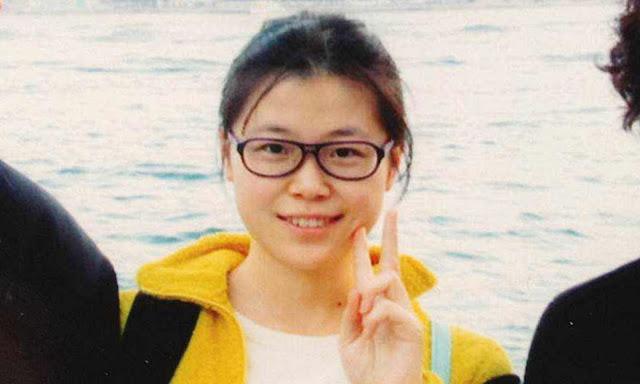A 24-year-old Chinese legal assistant accused of “subversion of state power” was released on bail on July 7, police say.
Zhao Wei, known for her nickname “Koala,” was enthusiastic about improving the lot of regular Chinese, and soon after graduating from university became an assistant to prominent lawyer Li Heping. Li is known for serving as legal counsel for activists and political prisoners in China, and both he and his assistant, Zhao, were targeted during a massive round of arrests last year.
Zhao became perhaps the youngest political prisoner in China.
She was taken away from home on July 10 last year as part of the campaign that led to 280 lawyers and activists being detained or arrested by police. The China Human Rights Lawyers Concern Group, a Hong Kong-based NGO, estimates that more than 20 are still detained.
Li Heping has taken on many politically dangerous legal cases, including the defense of marginalized groups, human rights activists, Falun Gong practitioners, and dissident writers. State media referred to Li as “criminal gangster” who has “subverted state security.” Chinese officials have never spelled out how his attempts to use the legal system to seek justice for his clients were a threat to state power, or illegal in any way.
Neither did Chinese officials provide details of Zhao’s alleged offences. She was charged with “incitement to subvert state power,” a tactic that authorities use to punish dissidents, human rights experts say. The charge carries the potential for life imprisonment.
Zhao’s young age put her in the public spotlight, with many wondering how a 24-year-old recent graduate could possibly threaten regime security.
On July 7, Tianjin police announced Zhao’s release on the microblog managed by Tianjin’s public security authorities. Zhao was said to have provided a “thorough confession” and presented a “good attitude,” and so the police deigned to release her on bail.
It is also possible that the police were reacting to domestic and international pressure about Zhao’s safety and status in custody. Unconfirmed reports suggest that she may have been sexually abused in late May, according to Radio Free Asia.
If she was traumatized while in detention, her first message on Sina Weibo, a popular social media, didn’t show it: “The afternoon sunshine is wonderful, and it is so nice to breathe freely again. I am Koala, the one that you guys have missed for so long,” she wrote.
Internet users suspect that Zhao is still under police surveillance and control, however. In the same post she expressed gratitude to the police, and later in a “letter to friends,“ said she regretted being ”used.”
It is common for China’s secret police to force individuals to make false confessions as a condition of leniency.
Zhao’s lawyer said that her post might not reflect her true thoughts. “The authorities are known for their means, and who can still stand up after one year?” said Ren Quanniu, her lawyer, according to The Associated Press.





